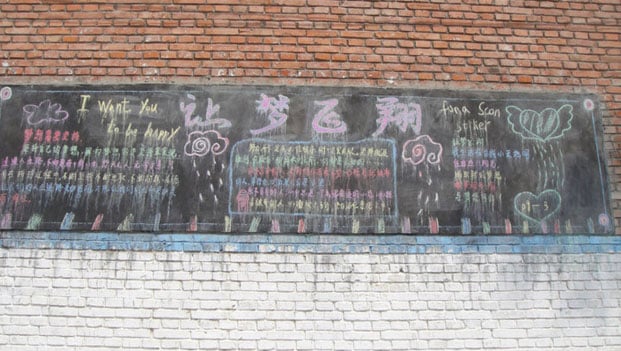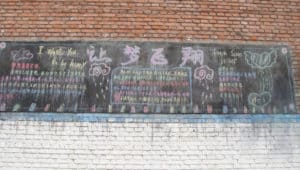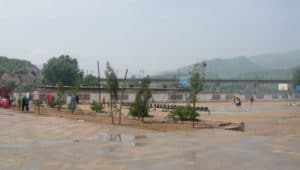A couple of weeks ago, I celebrated my 8,000th day on planet Earth with non-celebrations including going out for a run, cooking for myself, and reflecting on what those 8,000 days meant.
For me, personal milestones—such as birthdays, graduations, and the “8,000th day on Earth”—always come with a sense of gratitude and appreciation towards everyone and everything that have helped me, for without their help, I would have remained a baby (still am).
I have been extremely fortunate to have so many people—parents, grandparents, relatives, friends, and teachers—who not only supported me but also rooted for my success. 8,000 days ago, however, when I was a newborn, the high achievements in education and favorable circumstances that my generation of urban Chinese youth enjoy today could not have been foreseen by any of the people who offered me generous help along the way. In other words, something larger than the collective effort of individual people has made an arguably more crucial difference in my life.
Maybe I should also thank my country, too. Or should I?
In China, gratitude towards the country and the Party is a common lip service that carries less meaning than the words suggest. But these words do carry meaning, and they are right in pointing out that the success of individuals in China often owes to the country’s circumstances and the Party’s policies. It is true that the country has favorably affected my generation of urban youth in China, but we, as beneficiaries, must realize that this is only part of the story.
Our part of the story involves China’s annual double-digit economic growth for many consecutive years, which is now almost a cliché in Chinese propaganda and the introductory paragraphs of academic papers. But it was China’s economic growth that directly led to the enormous improvements in the lives of my generation at an unprecedented rate that we almost take for granted. The peace, stability, relative openness, economic prosperity, and ever-improving education resources that my generation has been blessed with in the past two decades are the envy of millions of children around the world.
However, among those millions of children are millions of our own countrymen, born around the same time but brought up in different parts of China. They are now better-off than they were 8,000 days ago, but the public education they received in no way prepared them to apply to the Ivy League, their quality of life did not improve at the double-digit rate in the cities, many of them are the so-called “left-behind” children because their parents had to leave for the cities for better-paying jobs, and some of them still struggle in poverty.
Inequality, along with the uneven distribution in the system that causes this inequality, is another part of our country’s story. It is an aspect of China’s story that often evades people like me, who are in a privileged position to ignore. Yet we must recognize that in the process of distributing the fruits of China’s development, people in the cities benefit much more than their compatriots in the rural areas, where the majority of Chinese people belong. People overlooked by China’s system could have been even better off than today if the system could grant them equal opportunity and access available to people like me who are lucky enough to have been born in big cities.
We should be grateful to those individuals who have helped us, but should we hold the same attitude for a system that benefited us at the expense of others?
On one hand, as an individual, I did not choose the policies that would favor me and disadvantage others, so enjoying the benefits of inequality certainly, does not make me responsible for denying some of my fellow countrymen the better future that they deserve.
On the other hand, the lives of people at both ends of China’s inequality are ultimately connected. For instance, the inequality in education affects not just the future of rural children but also the China’s productivity as a nation and the quality of life. As inequality remains, everyone will have to pay for its rising social cost.
However, being half a world away and drawn into my own endeavors, I often find it difficult to be of any help in bridging the gap of inequality back home. And there are millions of people just like me, who are too overwhelmed with demands of their own lives, especially for those of us striving to succeed in America. (Although I did some volunteer work as a high school student in the countryside for short periods of time, I always feel inadequate about my effort and wonder how much more I should do.)
As difficult as addressing inequality is, we can start with an open recognition that not everyone benefits from the system that favors us, and a keen awareness of what the underprivileged are going through. With this recognition and awareness, we have a better of a chance of making sound decisions to combat inequality should the occasion arise.
So for now, I should say that I am thankful for all the opportunities that I have enjoyed, some of which were made possible by a system that favored people like me, and a formal thank-you letter to my country will have to wait until more of my countrymen thrive alongside me.




